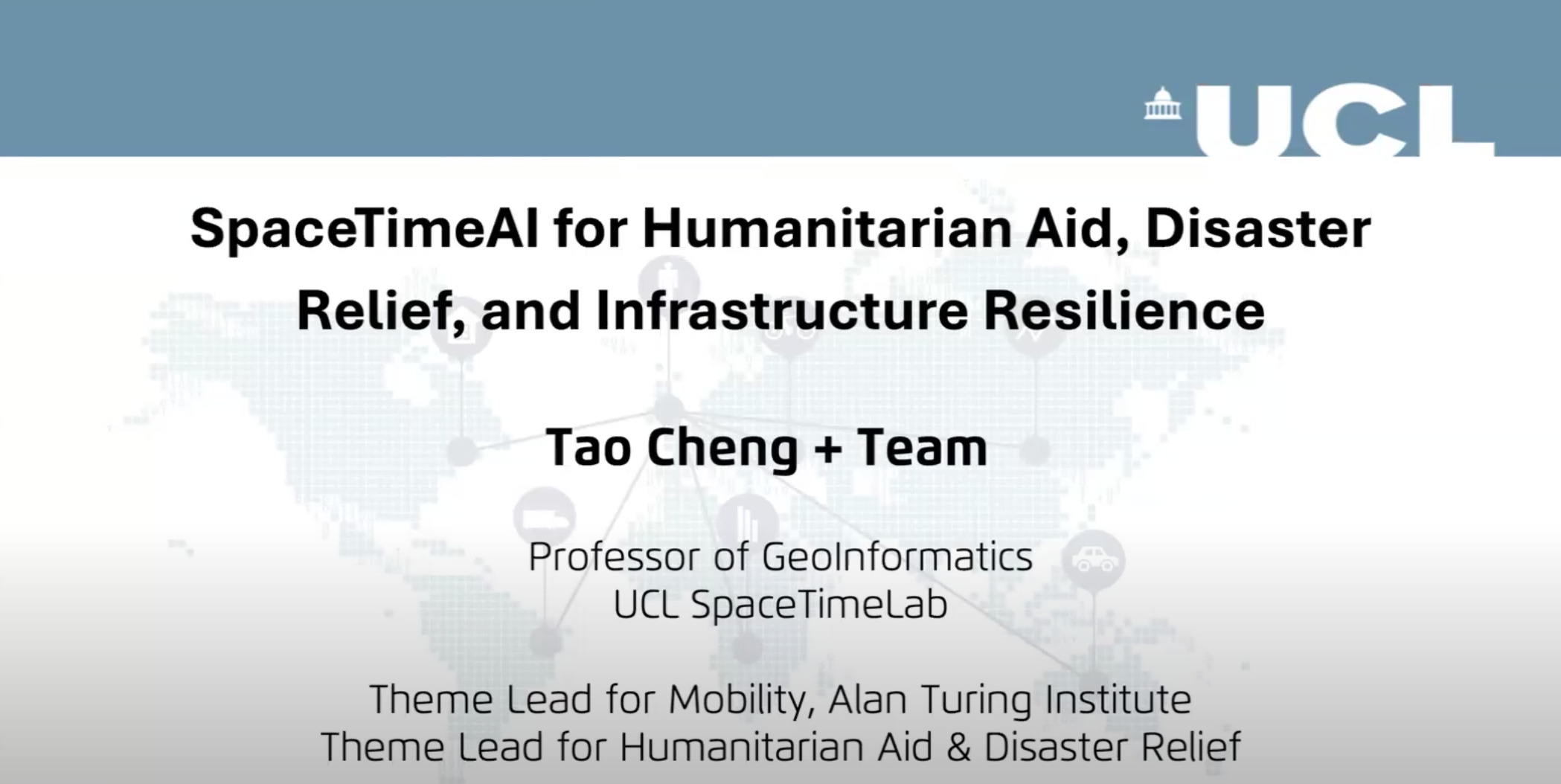
CyberTraining: SpaceTimeAI for Humanitarian Aid, Disaster Relief, and Infrastructure Resilience2024-10-21Dr. Tao ChengTao Cheng (HDR, PhD, FRGS, FICE, CEng) is a Professor of Geoinformatics in the Department of Civil, Environmental, and Geomatics Engineering at University College London (UCL). She serves as the Theme Lead for Mobility at the Alan Turing Institute and is a member of the College of Experts (CoE) for the Department for Transport, UK. She is also the Founder and Director of UCL SpaceTimeLab (www.ucl.ac.uk/spacetimelab), a world-leading research center that leverages SpaceTimeAI to gain actionable insights and foresights from spatio-temporal data for government, business, and society.
Her research interests span AI and Big Data, network complexity, and urban analytics with applications in transport and mobility, safety and security, business intelligence, and natural hazards prevention. She has secured more than £25M in research grants in the UK and EU, collaborating with government and industrial partners in the UK, including Transport for London, the London Metropolitan Police Service, Public Health England, and Arup, among others. She has published over 300 research articles and received numerous international best paper awards. Please refer to profiles.ucl.ac.uk/10774 for further details.
Presentation Description: In this webinar, Professor Cheng will showcase the recent advancements in leveraging machine learning, artificial intelligence (AI), and digital twin technologies to analyze environmental and human mobility data. These technologies have been pivotal in assessing vulnerability to natural hazards, such as landslides and flooding, and enhancing infrastructure resilience. The discussion will cover how SpaceTimeAI is applied to humanitarian aid and disaster relief efforts, offering innovative solutions for predicting and mitigating the impacts of disasters on vulnerable populations and critical infrastructure systems.